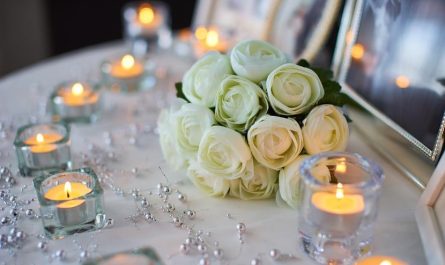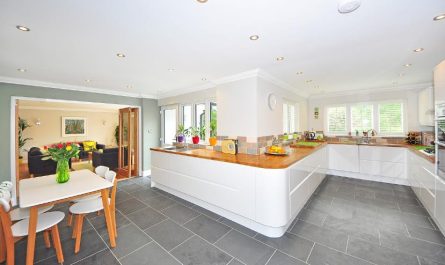Understanding Feng Shui
Feng Shui, which translates to “wind and water,” is based on the idea that everything in the universe is connected and that the placement and arrangement of objects in your home can influence your life. The core principle is Qi (pronounced “chee”), the vital life force or energy that flows through everything. Good Feng Shui aims to enhance the flow of Qi in your home, thereby improving various aspects of your life, including health, wealth, and relationships.
The Bagua Map: Your Feng Shui Blueprint
One of the fundamental tools in Feng Shui is the Bagua map, an energy grid used to analyze the different areas of your home. The Bagua map divides your space into nine sectors, each corresponding to a specific aspect of life:
- Wealth & Prosperity – This area focuses on financial success and abundance.
- Fame & Reputation – This zone affects your public image and recognition.
- Love & Relationships – This sector influences romantic and personal relationships.
- Family & Health – This area relates to your family life and overall well-being.
- Center – This central area represents balance and harmony.
- Children & Creativity – This sector is linked to creativity and the well-being of children.
- Knowledge & Wisdom – This area impacts personal growth and learning.
- Career & Life Path – This zone is associated with your career and life journey.
- Helpful People & Travel – This sector influences relationships with mentors and travel experiences.
To use the Bagua map, overlay it on the floor plan of your home. Align the bottom of the Bagua map with the entrance of your home to determine which areas correspond to different aspects of your life. This will guide you in making adjustments to enhance positive energy in specific areas.
Key Feng Shui Principles for Your Home
1. The Front Entrance
The front entrance, or the “mouth of Qi,” is crucial in Feng Shui. It is the primary point through which energy enters your home. Ensure that your entrance is well-lit, clean, and inviting. Avoid clutter and make sure the door opens fully. Adding plants or a water feature near the entrance can also enhance the flow of positive energy.
2. Clutter-Free Spaces
Clutter is one of the most common obstacles to good Feng Shui. It disrupts the flow of Qi and can lead to stress and stagnation. Regularly declutter your home, especially areas like closets, drawers, and storage spaces. A tidy environment allows for better energy flow and contributes to a sense of calm and order.
3. Furniture Arrangement
The placement of furniture can significantly impact the flow of Qi. Arrange furniture to create a balanced and harmonious space. In the living room, ensure that seating is arranged to encourage conversation and connection. Avoid placing furniture directly in front of windows or doors, as this can block energy flow. The “command position,” where you can see the entrance while seated, is ideal for key pieces like the bed or desk.
4. Lighting and Color
Lighting plays a vital role in Feng Shui. Natural light is ideal, so maximize daylight by using sheer curtains or blinds that can be easily opened. In areas with limited natural light, use lamps with warm, soft bulbs to create a welcoming atmosphere. Color also affects energy flow. Choose colors that correspond to the energy you want to cultivate in each area of your home. For example, greens and browns are great for the Wealth area, while pinks and reds enhance the Love area.
5. Mirror Placement
Mirrors can be powerful tools in Feng Shui when used correctly. They reflect and expand the energy in a room. However, avoid placing mirrors directly opposite doors or windows, as this can cause Qi to bounce around and create a sense of instability. Use mirrors strategically to enhance light and space, but be mindful of their placement.
6. The Five Elements
Feng Shui is based on the concept of the Five Elements: Wood, Fire, Earth, Metal, and Water. Each element has specific characteristics and influences:
- Wood: Represents growth and vitality. Use wooden furniture or plants.
- Fire: Symbolizes passion and energy. Incorporate candles or red accents.
- Earth: Stands for stability and nourishment. Add ceramics or earthy colors.
- Metal: Relates to clarity and precision. Introduce metal objects or white hues.
- Water: Represents flow and abundance. Use fountains or mirrors.
Balance these elements in your home to create a harmonious environment. For example, placing a water feature in the Wealth area can enhance financial prosperity, while incorporating earth tones in the Center can promote overall balance.
Feng Shui Dos and Don’ts
Dos:
- Enhance Positive Areas: Focus on enhancing the areas of your home that correspond to your goals and desires.
- Keep Pathways Clear: Ensure that pathways and walkways are unobstructed to allow for smooth energy flow.
- Incorporate Fresh Plants: Use live plants to bring vitality and natural energy into your home.
Don’ts:
- Avoid Sharp Angles: Sharp angles or “poison arrows” can create negative energy. Soften these angles with plants or curtains.
- Don’t Place Beds or Desks Directly Under Windows: This can lead to a lack of support and stability.
- Avoid Overuse of Mirrors: Too many mirrors can create a sense of restlessness and confusion.
Conclusion
Mastering Feng Shui involves understanding the principles of energy flow and applying them thoughtfully to your living space. By utilizing the Bagua map, maintaining a clutter-free environment, and thoughtfully arranging furniture and decor, you can create a home that supports balance, prosperity, and overall well-being. Embrace these Feng Shui basics to enhance the energy in your home and invite positive changes into your life.




